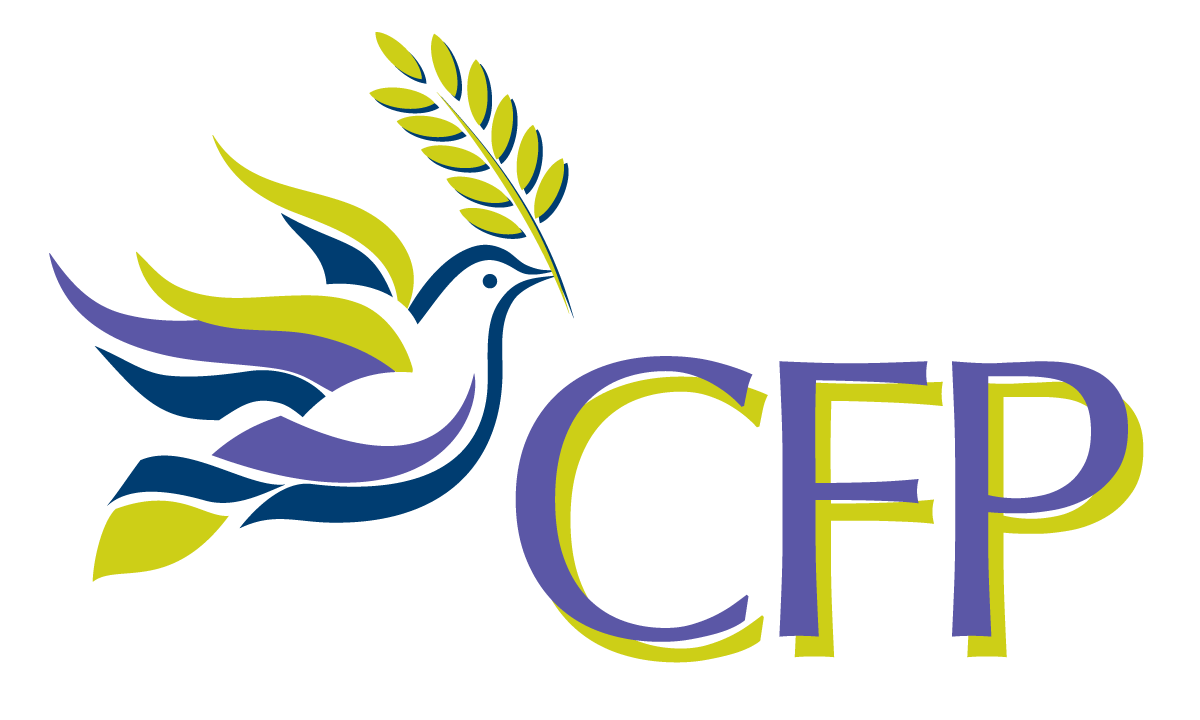
Introducing the CFP Institute
CORE AIMS
- Building capacity for peace-building and professional development
- Connecting with International CFP Alumni
1ST WORKSHOP: IDENTIFY AND DEVELOP YOUR CONFLICT RESOLUTION STYLE
- Explore the six styles: identify yours, examine their benefits and shortcomings, and understand how they interact.
- Learn to leverage other styles to enhance your effectiveness in conflict resolution and negotiation.
When:
- Sunday, August 3rd, 7 PM (GMT +3)
Register: here (so we can make sure our zoom call has enough capacity for all!)
Facilitated by: Rhonda Gessow

A criminal defense attorney with a JD degree from Emory University School of Law, Rhonda co-authored the book “Criminal Law Advocacy: Trial Investigation and Preparation” published by Matthew Bender, 1982. She worked as a restorative justice mediator for the San Mateo Juvenile Mediation program for 16 years bringing juvenile offenders together with their victims to talk about what happened and work towards an agreement between the parties. She is also a mediator for Peninsula Conflict Resolution Center handling matters of conflict within the county, including conflicts between neighbours, families, businesses, Homeowner’s Associations/owners, landlord/tenant. She has trained other mediators in various programs.
Future Workshop Agendas:
- Active listening and Effective Dialogue
- Managing our minds/bodies with intention during Conflict
- Actively Addressing and Resolving Conflict
- Proven Leadership skills and styles
- Making Effective presentations
- Critical thinking in a world of misinformation
- Negotiating with Purpose
- Engaging successful project management techniques
- Social Justice: What is it and is it relevant?
- What are the roles of CFP Alumni in the future of our homelands?
- How and where to apply for funding for peacebuilding.
Vote on which skillset we should focus on next, here
Essential Foundational Skills
These include the skill building to prepare for most other skill-building topics.
Conflict Resolution Styles
● 6 styles – What is yours?
● Pros and Cons of each style
● How do all styles work together?
Active Listening
● Are you really hearing what the other person is saying or are you listening through your own filters?
● Do you listen to learn or listen to interrupt?
● Words and Language – How do we avoid triggering others as we describe our own feelings, try to resolve differences and/or attempt to negotiate?
● Under-reaching and overreaching
Biology of Conflict
● What happens when we perceive stress or threats to our body?
● What is the protective response?
● How do cultural norms play into this?
● How can we manage our body’s challenges for a more successful result?
Conflict Resolution
● Effective strategies
● Nonviolent communication
Ongoing Peacebuilding Skills
These topics are critical to peacebuilding, communications and leadership. These courses are based on the Essential Foundational Skills listed above, and alumni are strongly encouraged to take at least two of the Essential Foundational Skills prior to taking the courses below.
Leadership Skills and Styles
● What characteristics do you admire in leaders?
● What characteristics do you seek to bring to your own leadership role?
● What skills are required in successful leaders?
● What skills do you naturally have and use when you lead and what skills would you seek to develop?
Effective Presentations
● What is your personal “brand”?
● How do you present yourself in ways supportive/ not supportive of your personal brand?
●
Effective Presentations
Critical Thinking
● How do we decide what is “truth?”
● How do we respond to others who hold onto falsehoods?
Negotiating
● Concept of transitional justice
● Sharing a common vision
● Negotiating skills
Project Management
● Project selection
● Tasks to be accomplished
● Critical Paths
● Deadlines: balance between timelines and quality
Free vs Responsible Speech
Social Justice
● What is it?
● How does it affect conflicts?
● What are ways to deal with injustice?
History of Conflicts
● What occurred and various perspectives?
● What is misinformation about what occurred?
Role of Teens and Young Adults in Peacebuilding
● Why do you believe that CFP should focus on this targeted segment of peacebuilders?
